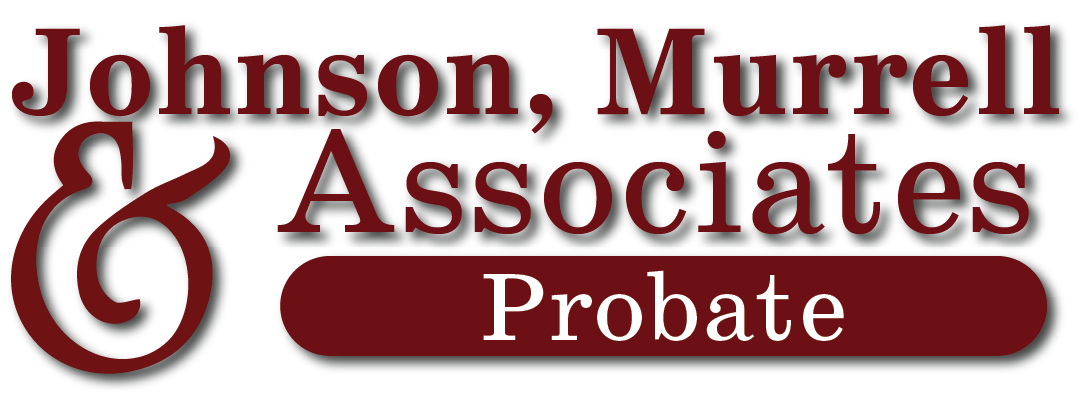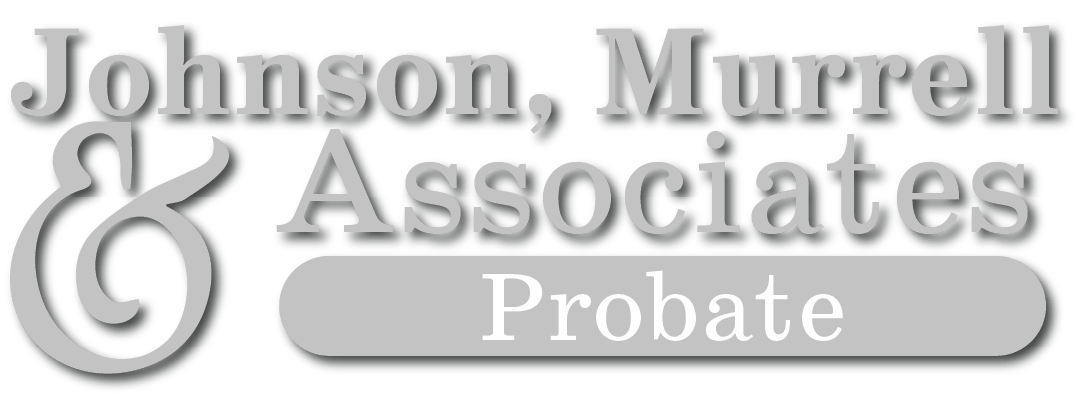We often think of inheritance as a net gain — it might include money, property, or other family heirlooms. But can you also inherit debt?
In most cases, no. Most debts are covered by the deceased’s estate, so you won’t personally be responsible for any outstanding bills of your parents, grandparents, aunts or uncles, even if you’re named in the will. With that said, a deceased person’s debt doesn’t die with them. Johnson, Murrell & Associates can help determine which debts the estate of the deceased is responsible for.
The estate of the deceased will pay for:
- Mortgage debt
- Credit card debt
- Medical debt
- TennCare for nursing homes
Mortgage Debt
Several scenarios can unfold when inheriting someone’s mortgage debt. If there’s a cosigner on the loan, as is commonly the case with married couples, the cosigner typically keeps the house and becomes solely responsible for making the mortgage payments.
A spouse or family member inheriting the property has a couple of options. Usually, they have the right to assume the mortgage payments and retain ownership of the home. Of course, the heir can always sell the home and use the proceeds to pay off the mortgage. Alternatively, the deceased’s estate assets might be used to settle the mortgage debt as per the terms of the will. Additionally, a life insurance policy could be in place to cover the mortgage upon the borrower’s death.
In some cases, no one assumes the mortgage and there’s no provision for repayment. In these situations, the lender may resort to foreclosure and sell the property to settle the debt. Typically, the mortgage debt is settled using funds from the estate’s assets or proceeds from asset sales.
Credit Card Debt
Following someone’s passing, their estate assumes responsibility for settling outstanding debts, which includes credit card balances. In the vast majority of cases, relatives aren’t obligated to use personal funds to clear these credit card debts.
You might be liable if you shared a joint account with the deceased or if you are a surviving spouse in a community-property state. In the latter, spouses are considered joint owners of almost all assets as well as debts acquired in a marriage. You could inherit the debt in these situations, requiring you to repay it on your own or with funds from the deceased’s estate.
It’s important to understand your potential liabilities and obligations regarding inherited credit card debt. It involves legal nuances and regional laws that may influence the extent of your responsibility. For personalized advice, contact an attorney specializing in probate law.
Medical Debt
Inheriting someone’s medical debt usually doesn’t burden beneficiaries unless they’ve consented to assume responsibility explicitly. If the deceased had medical insurance, their coverage might address the outstanding debt with the insurer settling the dues. However, specific circumstances may still hold you accountable for someone’s medical debt.
Probate proceedings come into play following the passing of a loved one with the court appointing an executor to administer the estate. The executor’s primary duty is to manage the deceased’s assets and allocate them as per the will or state laws.
In this process, settling outstanding debts, including medical bills, takes precedence. The executor utilizes the estate’s assets to clear these obligations before distributing the remaining assets to beneficiaries. Therefore, beneficiaries typically do not inherit medical debt directly. Instead, it is settled through the estate’s assets during the probate process.
TennCare for Nursing Homes
Estate recovery is how TennCare recoups funds for long-term services and support from the estates of individuals who have passed away. This includes nursing home care and other community-based services.
When TennCare covers the costs of nursing facilities and other long-term care services, federal law mandates the recovery of these payments posthumously. Estate recovery entails leveraging the value of the deceased individual’s assets to reimburse TennCare for the care they received during their lifetime.
The estate encompasses all property, belongings, money, and other assets owned by the individual at the time of their death. Importantly, estate recovery solely occurs after the individual’s passing. This helps ensure that their family members are not personally liable for the debt owed to TennCare.
The Tennessee Probate Process
Probate is the legal process where a deceased person’s assets are distributed and debts settled under court supervision. In Tennessee, probate begins by filing a petition in the county probate court where the deceased resided. The court appoints an executor to manage the estate’s affairs, following either the deceased’s will or state law if no will exists.
Johnson, Murrell & Associates can provide invaluable assistance throughout the probate process in Tennessee. With our expertise in estate planning and probate law, our legal experts can guide you through every step, from filing the initial petition to final asset distribution.
Our services include:
Additionally, we can represent you in probate court proceedings to ensure compliance with legal requirements and minimize potential conflicts. By entrusting Johnson, Murrell & Associates with probate matters, you can navigate the process knowing your interests are well-protected.

Inheriting mortgage debt offers choices such as opting out of payments, assuming payments, using estate assets, or relying on insurance. Credit card debt and medical bills are settled through the estate with attention paid to legal nuances. TennCare recoups funds posthumously. Johnson, Murrell & Associates aid in probate, ensuring compliance and client peace of mind.
At Johnson, Murrell, & Associates, we understand that handling a loved one’s estate and bills after their passing is an emotional, stressful experience. Our job is to make your life easier, which means guiding you through the process so you understand what’s to come. To schedule a consultation, call us at 865-453-1091 or schedule an appointment.



